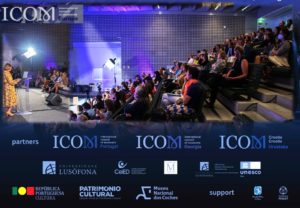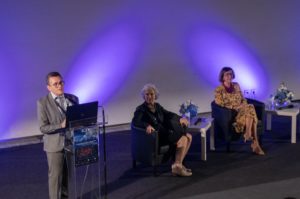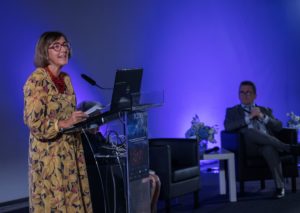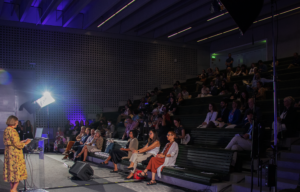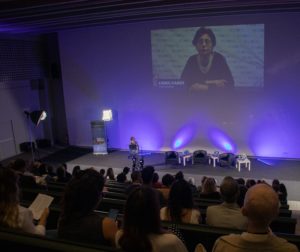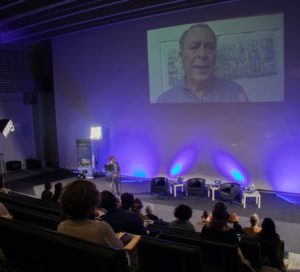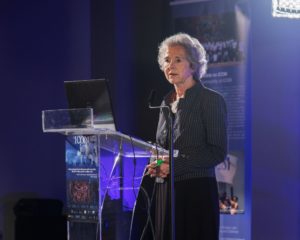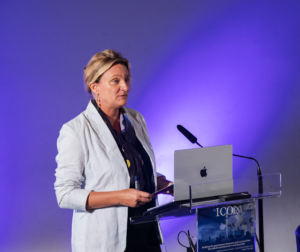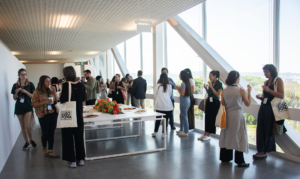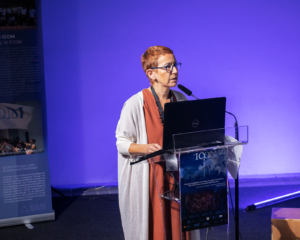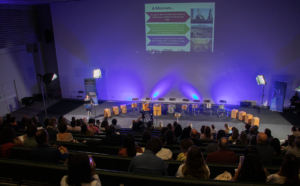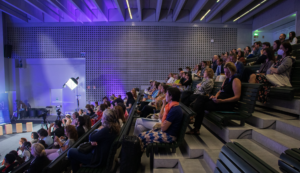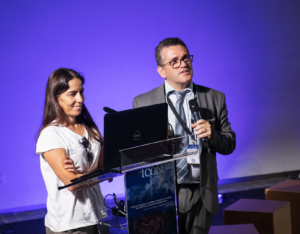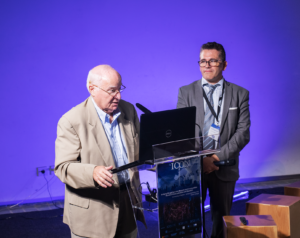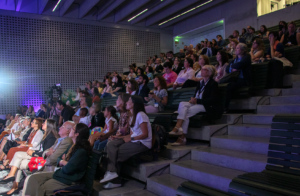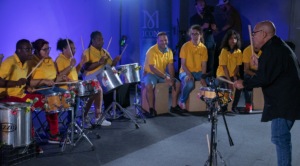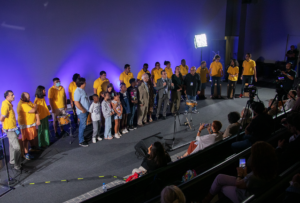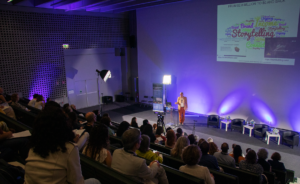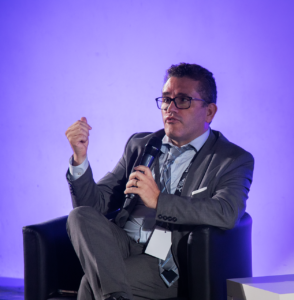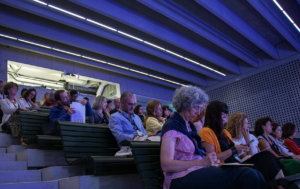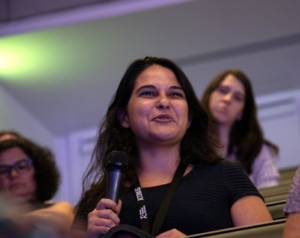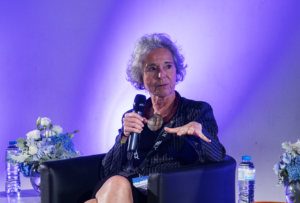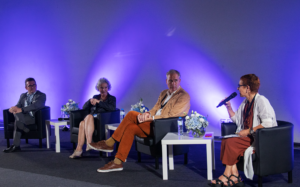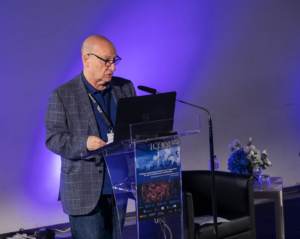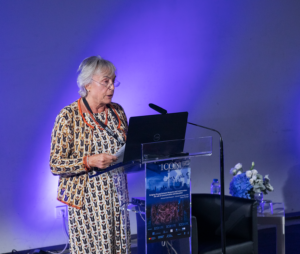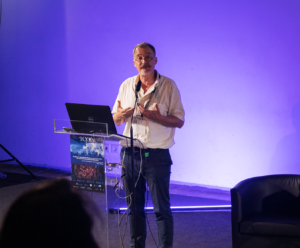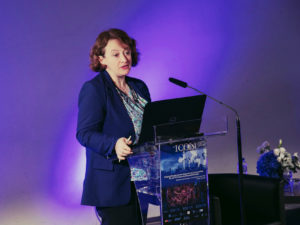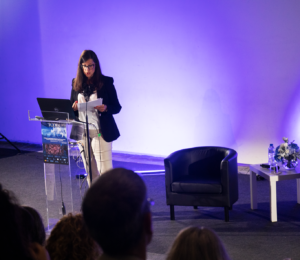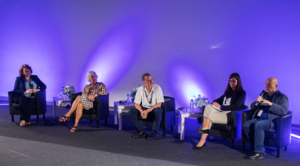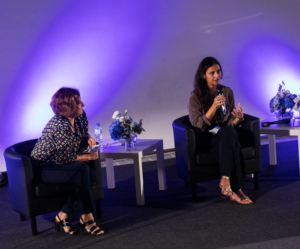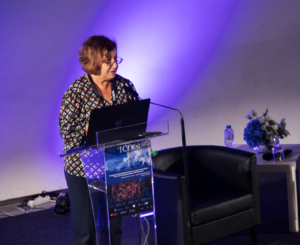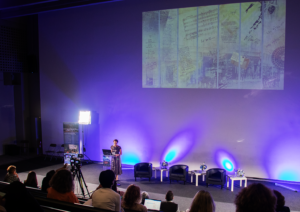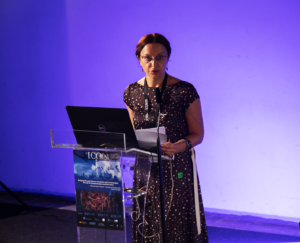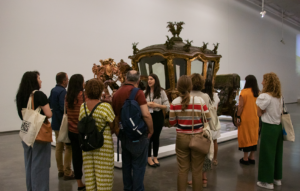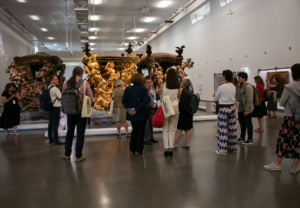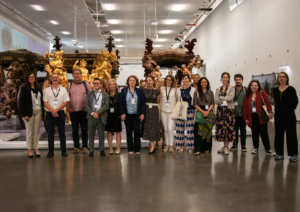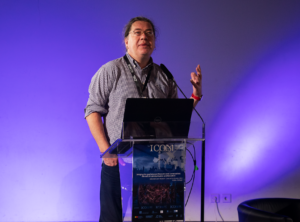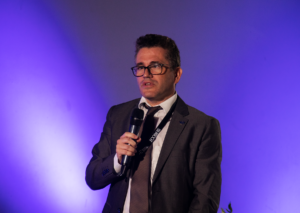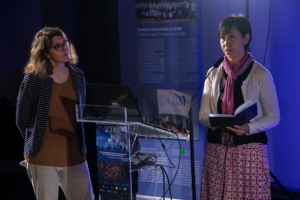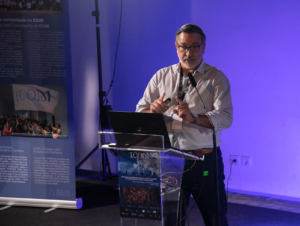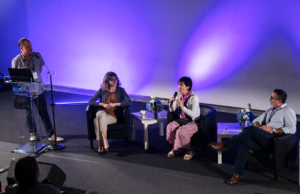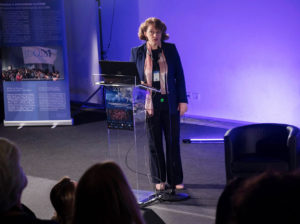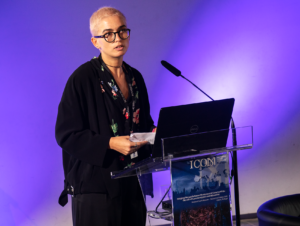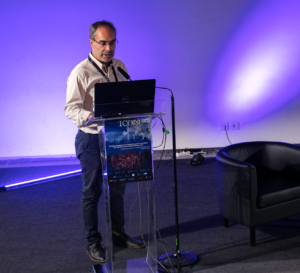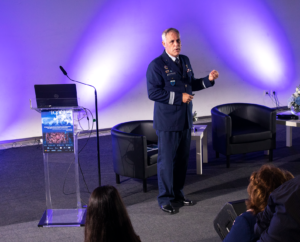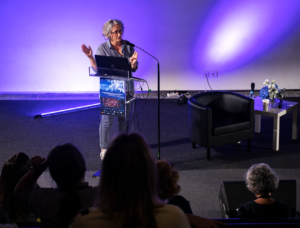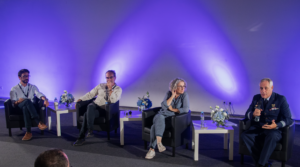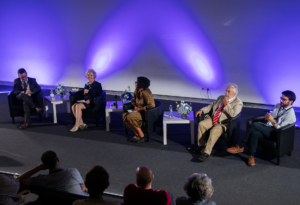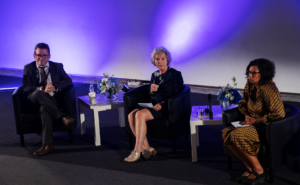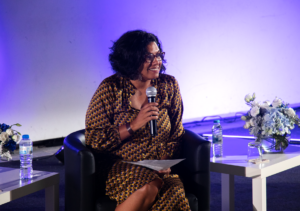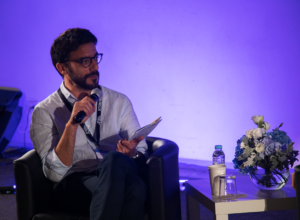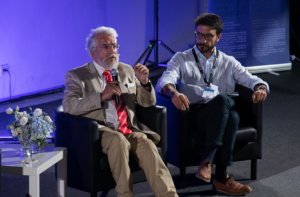October 9, 2023
Report on the 2023 ICOM Europe International Conference: Bridging Museums and Communities through Education and Communication Conference, Report
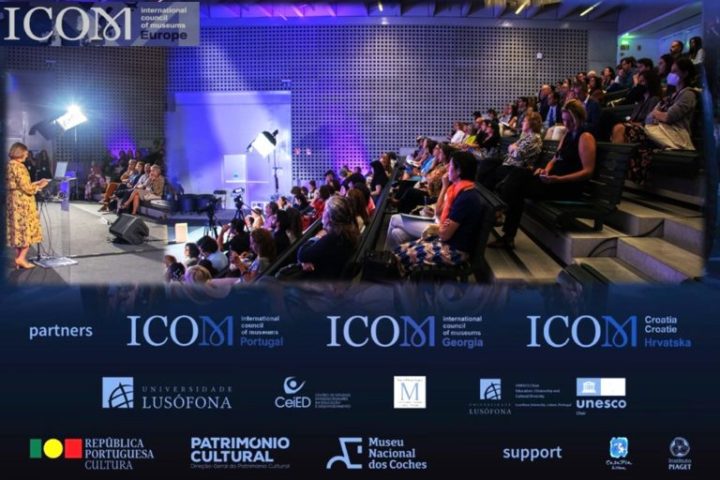
On October 2-3, 2023, the ICOM Europe International Conference, themed “Bridging the Gap between Museums and Communities: The Role of Communication and Education,” was hosted at the National Coach Museum in Lisbon, Portugal. This unique gathering brought together ICOM members, educators, museum professionals, and communication experts to explore the role of museums in empowering communities and facilitating knowledge co-creation. Over two days, attendees engaged in thoughtful discussions around several key themes, including the significance of museums in preserving cultural memory, strategies to amplify community voices through communication and education, the diverse meanings objects hold for various communities, the inclusion of underrepresented groups, the use of communication and education to address societal challenges, and the transformation of virtual visitors into active museumgoers. Photo-album below.
The conference commenced with an official opening featuring Isabel Cordeiro, the Secretary of State of Culture of the Portuguese Republic, and João Carlos dos Santos, General Director of Cultural Heritage. Emma Nardi, President of ICOM, and Luís Raposo, an ICOM Executive Board Member, shared their welcomes and insights via video messages. Juliette Raoul-Duval, President of ICOM Europe, joined David Felismino, President of ICOM Portugal, and the conference’s host, Mário Antas, Director of the National Coach Museum, in inaugurating the event, setting the stage for an engaging and thought-provoking conference.
The conference drew in over 200 experts in museums and heritage from 15+ countries.
The keynote sessions set the tone for the conference’s discussions on museums, communities, and the future of the field. Karen Brown (Professor of Art History and Museum Studies from the University of St Andrews, chair of ICOFOM (2022-25)), shared insights on the sustainability of island heritage communities. Mário Moutinho (SOMUS-IC) explored Sociomuseology and the role of the new international ICOM committee (SOMUS-IC) in connecting museums with communities. Darko Babic (ICTOP; ICOM Croatia) discussed the future of museum professionals, focusing on their competencies in 2030 and the path forward in forging a new era for the industry. These talks provided a robust foundation for the conference’s themes and discussions.
The first session of the conference, titled “Challenging times: Museums and social issues of the XXI Century,” provided a platform for experts to explore the evolving role of museums in today’s society. Moderated by Fátima Roque (General Directorate of Cultural Heritage) the session highlighted the vital role of museums as catalysts for addressing contemporary social challenges. Mário Antas (Director of the National Coach Museum, Portugal) emphasized the pivotal role museums play in promoting solidarity and inclusivity within communities. Juliette Raoul-Duval (Chair of ICOM Europe) presented the French Governmental Plan to Combat Discrimination (2023-2026), underlining museums’ capacity to foster tolerance and combat various forms of discrimination. Bjorn Stenvers (President of ICOMOS NL, President of NFN – Nepal Federation Netherlands and CEO Eye Care Foundation (ECF) introduced the concept of whether Museum Marketing could be a solution for addressing climate change. Collectively, the first session laid the groundwork for further exploration of how museums can effectively address pressing societal issues and make meaningful contributions to building inclusive, sustainable communities. Museums and Heritage should work together with NGOs to face their current challenges. Fundraising, health issues, tourism and sustainability can all be addressed more effectively together.
The second session, titled “Giving voice to ICOM National Committees,” moderated by Lana Karaia (Chair of ICOM Georgia; board member of ICOM Europe) provided a platform for National Committees to share their work and explore the intersection of museums, education, and community engagement. Giuliana Ericani (ICOM Italy, Vice-chair of ICOM Europe) presented the ICOM Italian commission’s work on “Education about the cultural heritage, Museums-schools-territory, and professionalism” from 2019-2023. Alexandre Chevalier (Board member of ICOM Europe), in collaboration with Rafael Alas, Carlos Flores Manzano, Stéphanie Masuy, Sofie Vermeiren, Véronique van Cutsem, Melissa Campos, and Sergio Servellón, shared their project on “Bringing Museums Closer to Salvadoran Communities in the Context of the Covid 19 Pandemic (Closer Museums)” from Belgium and El Salvador. María Auxiliadora Llamas Márquez (Chair of ICOM Spain and Museum curator at Museo de Cádiz, Spain), shed light on the challenges and opportunities of “Museums and communities in challenging times: the Spanish case.”
In the third session “Museums and communities of the XXI Century” moderated by Alexander Chevalier, attendees were treated to a diverse set of insights. The session offered a glimpse into the evolving landscape of museums and their engagement with communities in the 21st century. Claudia Pecoraro (Independent museologist and curator, Rome, Italy) presented “Building a Community-Centric Museum: The DUODOland Project and the Evolution of Museology.” Nino Sanadiradze (General Director of the Tbilisi Museums Union, Georgia), shared the pivotal role played by the Union of Tbilisi Municipal Museums in modern Georgia.
The fourth session, moderated by Clementina Nogueira (Piaget Institute), centered around the theme “Heritage, Community, and Schools” and explored the intersection of heritage, education, and communities, emphasizing the importance of engaging young minds in the preservation and understanding of our cultural legacy. Anna Bernardoni and Francesca Gentile (Civico Museo Archeologico di Angera, Italy) and Alchemilla Cooperativa Sociale (Italy), respectively, presented “Giving Childhood a Voice: Gentle Digital Technologies for a New Interpretation and Storytelling of the Archaeological Heritage,” showcasing a case study from the Archaeological Museum of Angera. Miguel Feio (Piaget Institute, Portugal) introduced “COSMUS – Community Schools Museums,” discussing innovative approaches to heritage, community engagement, and education within the school context.
Session fifth “Communication as a Key to Open Museums to Communities,” moderated by Cristina Marques (General Directorate of Cultural Heritage), emphasized the critical role of communication in fostering meaningful connections between museums and their surrounding communities, providing valuable insights for museum professionals and enthusiasts alike. Lana Karaia (Chair of ICOM Georgia; Head of Tbilisi State Art Academy Museum, Georgia) explored “Museum Communication and Community Engagement in Georgia,” highlighting the challenges and pivotal role of effective communication in connecting museums with their communities in the country. David Felgueira, Isabel Victor, and Magda Viana presented a case study titled “Museum Sporting, Burgled! Sporting Clube de Portugal,” discussing innovative communication and marketing strategies that actively involve the community.
Session sixth “The Portuguese Experience: Different Museums Engaging with Communities,” moderated by David Felismino (Chair of ICOM Portugal) showcased diverse approaches to community engagement by Portuguese museums. The session underscored the importance of tailoring museum initiatives to the needs and interests of communities, thereby strengthening the bonds between museums and the public they serve. Silvério Figueiredo, Mário Antas, Vanessa Antunes, and Patrícia Boto from the Portuguese Centre of Geo-History and Prehistory shared their project aimed at disseminating paleontological and prehistoric heritage to international, national, and local communities. Carlos Mouta Raposo (Director of the Air Museum), highlighted the significance of the Air Museum (Museu do Ar) to the communities of Sintra and Alverca. Inês Bettencourt da Câmara, along with her colleagues from Mapa das Ideias, Joana Lino, Liste Carrondo, and Black GunPowder Museum, presented “DREAM – Digital Reality for Educational Activities in Museums,” exploring innovative digital approaches to engage audiences and foster educational experiences in museums.
The conference’s cultural program was enriched with a special musical performance and a concert held in the Ancient Royal Riding School within the National Coach Museum premises. Attendees also had the opportunity to explore the National Coach Museum through guided visits, further enhancing their experience and connection to the local culture and heritage.
The conference came to a formal close with an evaluation and analysis session led by Rita Jerónimo, Sub-Director of the General Directorate of Cultural Heritage from the Ministry of Culture; Pedro Florêncio, Regional Delegate of Education of Lisbon and Tagus Valley representing the Ministry of Education and Science; Juliette Raoul-Duval, President of ICOM Europe; David Felismino, President of ICOM Portugal; João Neto, President of the Portuguese Association of Museology; and Mário Antas, the Director of the National Coach Museum. Their collective insights and reflections marked the conclusion of the event, leaving attendees with valuable takeaways and ideas for the future.
The conference underscored museums’ vital role in addressing current societal issues, promoting inclusivity, and fostering community engagement. Key takeaways include the importance of effective communication strategies and the need for museums to adapt and co-create knowledge with communities. Looking ahead, the future of museums relies on their continued commitment to building inclusive, sustainable societies through meaningful engagement with their communities.
The conference was made possible through the collaborative efforts of ICOM European Regional Alliance, in conjunction with partners including ICOM Portugal, ICOM Georgia, ICOM Croatia, and the National Coach Museum of Lisbon. It received significant support and endorsement from institutions such as Lusofona University, the Directorate-General for Cultural Heritage of the Portuguese Republic, the Ministry of Culture, and the UNESCO Chair on Education, Citizenship, and Cultural Diversity.
Photo-Credit: «Filipa Alves / MNC / DGPC».
